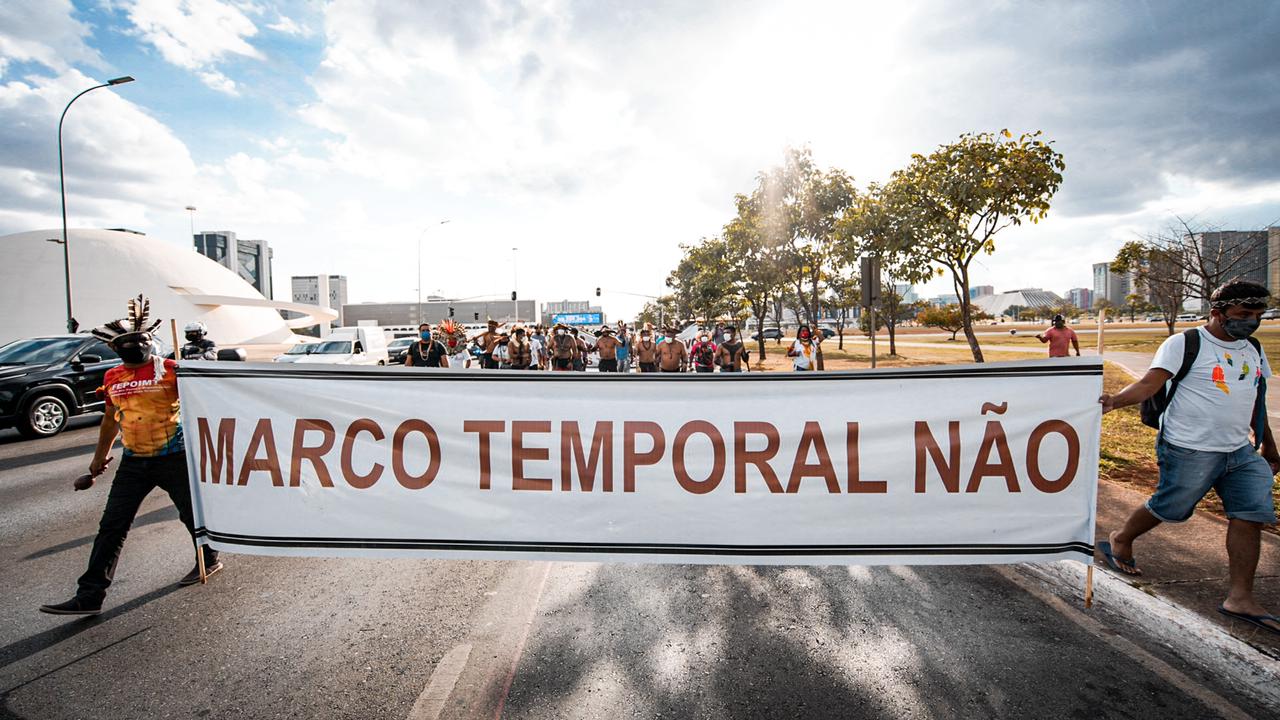UN and OAS ask Supreme Federal Court to reject the ´timeframe thesis´
The Court is to judge the recourse that will determine the future of indigenous lands in Brazil, on Wednesday (25)
 Povos indígenas participam de manifestação em Brasília contra a tese do marco temporal. Foto: Eric Terena/Mídia Índia
Povos indígenas participam de manifestação em Brasília contra a tese do marco temporal. Foto: Eric Terena/Mídia Índia
On Monday (23), human rights experts from the UN and the IACHR (Inter-American Commission on Human Rights) requested that the STF (Supreme Federal Court) reject the ´timeframe thesis´. Both requests were made on the eve of judgment of Extraordinary Recourse 1.017.365, scheduled for Wednesday (25) at the Court. This will determine the future of indigenous lands in Brazil.
According to Francisco Cali Tzay, UN Special Rapporteur on the rights of indigenous peoples, “acceptance of the doctrine of the timeframe thesis would lead to significant denial of justice for many indigenous people who are seeking recognition of their traditional land rights. The Constitution holds that indigenous peoples have the right to adverse possession of the lands they have traditionally lived on”.
“If the Court accepts the so-called timeframe thesis in its decision on land demarcation at the end of this month, it will legitimise violence against indigenous people and will incite conflicts in the Amazon rainforest and in other areas”, the rapporteur added.
Read the statement made by the UN Rapporteur
The IACHR also reiterated its concern over the ´timeframe thesis´ and warned that this would have a serious impact on the collective land rights of the indigenous and tribal people of Brazil.
The Commission also repeated that the application of the thesis is in contravention of international and inter-American human rights norms, specifically the American Convention on Human Rights and the American Declaration on the Rights of Indigenous Peoples. Especially as it does not take into consideration the numerous cases in which indigenous people were forcibly removed from their territories, often using extreme violence, which is why they were not living on their territories in 1988.


